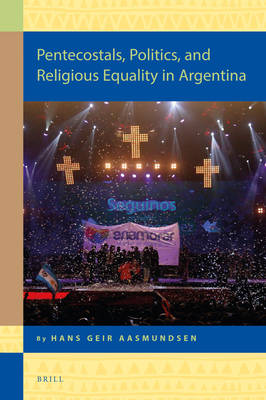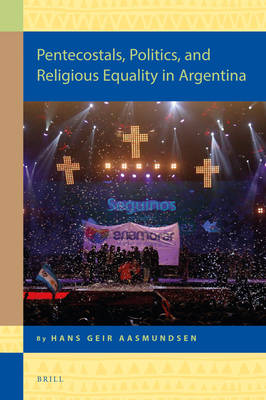
- Afhalen na 1 uur in een winkel met voorraad
- Gratis thuislevering in België vanaf € 30
- Ruim aanbod met 7 miljoen producten
- Afhalen na 1 uur in een winkel met voorraad
- Gratis thuislevering in België vanaf € 30
- Ruim aanbod met 7 miljoen producten
Zoeken
Pentecostals, Politics, and Religious Equality in Argentina
Hans Geir Aasmundsen
€ 201,45
+ 402 punten
Omschrijving
In Argentina, Pentecostalism had a breakthrough in the early 1980s, and today more than 10 per cent of the population are Pentecostals. The revival coincided with a socio-political transformation of Argentinean society. After half a century of dictatorships and Perónism, democracy was restored, and structural changes paved the way for an autonomisation of the political, economic, scientific and religious spheres. The "new" form of society that developed resembles what in this study is called a Western model, which to a large degree has been, and still is, spread on a global scale. In this book, Aasmundsen examines the religious sphere and how Pentecostals relate to society at large, and the political and judicial spheres in particular.
Specificaties
Betrokkenen
- Auteur(s):
- Uitgeverij:
Inhoud
- Aantal bladzijden:
- 224
- Taal:
- Engels
- Reeks:
- Reeksnummer:
- nr. 17
Eigenschappen
- Productcode (EAN):
- 9789004325043
- Verschijningsdatum:
- 10/11/2016
- Uitvoering:
- Hardcover
- Formaat:
- Genaaid
- Afmetingen:
- 160 mm x 236 mm
- Gewicht:
- 476 g

Alleen bij Standaard Boekhandel
+ 402 punten op je klantenkaart van Standaard Boekhandel
Beoordelingen
We publiceren alleen reviews die voldoen aan de voorwaarden voor reviews. Bekijk onze voorwaarden voor reviews.








